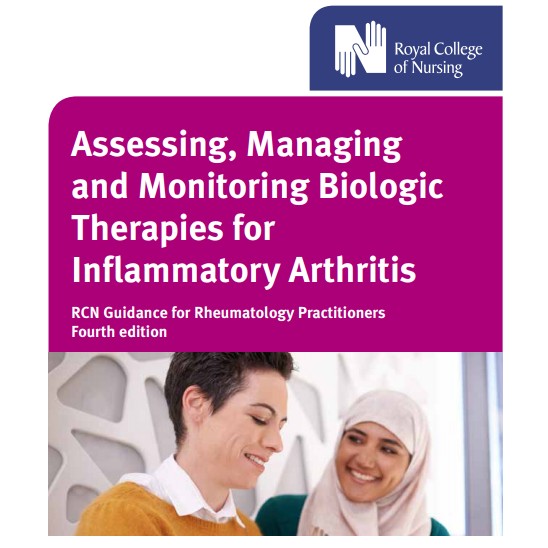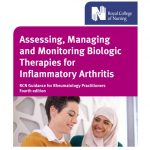 Accredited pharmacists in England, Wales and Northern Ireland can offer an enhanced patient service called a Medicines Use Review (MUR). This structured review is free to patients, and is designed primarily to help them manage their medicines more effectively. Little is known about how often this service is used for people living with pain. We know little about pharmacists’ and pain patients’ views of what happens in pain-related MURs, or why they don’t engage, and what they would like to happen.…
Accredited pharmacists in England, Wales and Northern Ireland can offer an enhanced patient service called a Medicines Use Review (MUR). This structured review is free to patients, and is designed primarily to help them manage their medicines more effectively. Little is known about how often this service is used for people living with pain. We know little about pharmacists’ and pain patients’ views of what happens in pain-related MURs, or why they don’t engage, and what they would like to happen.…
Read more of this article
Author: Garreth
New report from industry Medical Technology Group finds hip replacements will save the UK economy £700m
A not-for-profit organisation comprising patient groups, research charities and medical device manufacturers– the Medical Technology Group – released a report on 29 November 2017 called ‘Keeping Britain Working: How medical technology can help reduce the cost of ill health to the UK economy’
This report updated the 2011 report by the Work Foundation into the value of Medical Technology to society and identified how better use of medical technology can help the Government save up to £476m in welfare spending through improved use of medical technology.…
Read more of this article
Inflammatory Arthritis Toolkit
 The British Society for Rheumatology has launched the Inflammatory Arthritis toolkit in partnership with the Royal College for GPs and health professionals. Designed to facilitate earlier treatment for this condition, this toolkit aims to be a user-friendly guide to inflammatory arthritis for primary care professionals, people affected by arthritis and clinical commissioning groups.
The British Society for Rheumatology has launched the Inflammatory Arthritis toolkit in partnership with the Royal College for GPs and health professionals. Designed to facilitate earlier treatment for this condition, this toolkit aims to be a user-friendly guide to inflammatory arthritis for primary care professionals, people affected by arthritis and clinical commissioning groups.
 The RCPG have also provided a summary here.
The RCPG have also provided a summary here.
Guest blog: Improving quality in orthopaedic care

by Mark Brandreth, NOA Lead CEO and
CEO of the Robert Jones and Agnes Hunt Orthopaedic Hospital NHS Foundation Trust
As the new lead CEO for the National Orthopaedic Alliance (NOA), I am proud to be part of a group of organisations and people who are working to drive improvements in orthopaedic care nationwide. I’m pleased to have been given the opportunity to contribute a guest blog to ARMA’s newsletter to share an update on our work with you. At Robert Jones and Agnes Hunt Orthopaedic Hospital (RJAH), our work with the NOA, and its vanguard work in particular, is vital to our future – and to the future of orthopaedic care received by patients across the country.…
Read more of this article
ARMA Chair Tony Woolf receives international recognition
 Chair of Arthritis and Musculoskeletal Alliance Receives Top Honor from American College of Rheumatology
Chair of Arthritis and Musculoskeletal Alliance Receives Top Honor from American College of Rheumatology
Professor Tony Woolf was honored with the designation of Master by the American College of Rheumatology (ACR) during the 2017 ACR/ARHP Annual Meeting in San Diego. Recognition as a Master is one of the highest honors that the ACR bestows on its distinguished members.
The designation of Master is conferred on ACR members who have made outstanding contributions to the field of rheumatology through scholarly achievement and/or service to their patients, students, and the rheumatology profession and are age 65 or older.…
Read more of this article
Lessons from traditional Chinese acupuncture – Adding value to life
 Guest Blog by Paul Hitchcock, Chief Executive, The British Acupuncture Council
Guest Blog by Paul Hitchcock, Chief Executive, The British Acupuncture Council
I recently spoke at an NHS England event for International Day for Older People, my talk being titled “Lessons from traditional Chinese acupuncture – adding value to life”. We know we have a demographic challenge here in the UK and we talk about an ageing population that will see an increase of around one million people over the age of sixty five in the next three years. In China the number is closer to three hundred million, although the approach there is not to use age as the differentiator but the person’s overall health and wellbeing – an approach that is also now starting to be applied here in the UK.…
Read more of this article
NICE Persistent Pain Guidelines committee
 NICE is looking for members to join the persistent pain guideline committee.
NICE is looking for members to join the persistent pain guideline committee.
They are looking for:
- two general practitioners
- a pain specialist
- a physician with interest in pain
- a liaison psychiatrist
- a pharmacist
- an allied health professional
- a commissioner
- a pain psychologist
- a nurse specialist or practitioner
- a public health professional.
They are also looking for co-opted expert witnesses with the following background or experience:
- an addiction specialist
- a social worker.
Find full details here on the NICE website.
NICE are also recruiting for lay members to join the committee: www.nice.org.uk/lay-member-persistent-pain-guideline-committee…
Read more of this article
Contribute to EULAR 2018 – Abstract submission now open
 The Annual European Congress of Rheumatology will take place in Amsterdam, 13-16 June 2018.
The Annual European Congress of Rheumatology will take place in Amsterdam, 13-16 June 2018.
Building on a record of 4,850 abstracts submitted in 2017, EULAR 2018 is expected to achieve more success than ever before. Submit your abstract and join EULAR in its endeavour to improve the availability of information and the ability to diagnose and treat all areas of rheumatic and musculoskeletal diseases (RMDs).
Abstract submission deadline: 31 January 2018 23:59 CET
Edgar Stene Prize 2018 – Send your entries, don’t miss out!
 Deadline is Friday 21st December. Please submit your completed essays entry to projects@arma.uk.net.
Deadline is Friday 21st December. Please submit your completed essays entry to projects@arma.uk.net.
The Edgar Stene Prize 2018 competition is open to people 18 years and over who are living with a Rheumatic and Musculoskeletal (RMD) disease. The 2018 prize will be awarded to the winning essay on the topic:
“My personal champion – supporting my everyday life with a rheumatic and musculoskeletal disease (RMD)”
For many people with RMDs it can be a long journey to receive the right diagnosis and appropriate treatment for their condition.…
Read more of this article
Biologics guidance document for Rheumatology Practitioners
 The RCN Rheumatology Forum would like to report that in September 2017 the 4th edition of the RCN Biologics guidance document for Rheumatology Practitioners went live: “Assessing, managing and monitoring Biologic therapies for Inflammatory Arthritis“
The RCN Rheumatology Forum would like to report that in September 2017 the 4th edition of the RCN Biologics guidance document for Rheumatology Practitioners went live: “Assessing, managing and monitoring Biologic therapies for Inflammatory Arthritis“
It is available online now as a downloadable PDF via our link: my.rcn.org.uk/RCNguidance.
Strategy Day
On the 17th Nov 2017 the RCN Rheumatology Forum are planning to meet for a (self-funded) Strategy Day where future projects and final details of the forthcoming RCN Rheumatology Nursing Workshop will be discussed.…
Read more of this article









